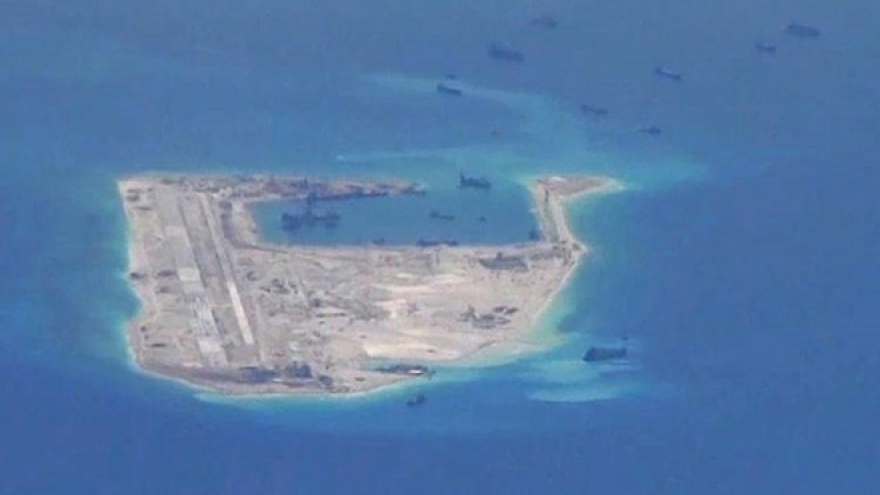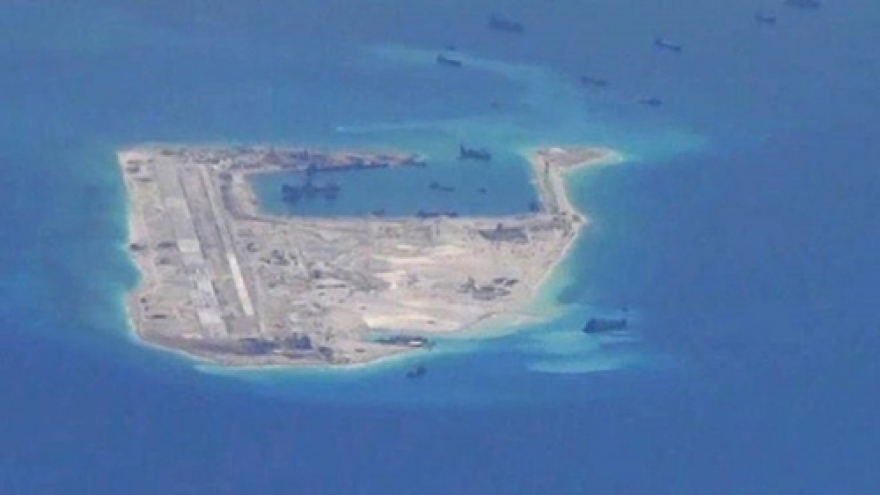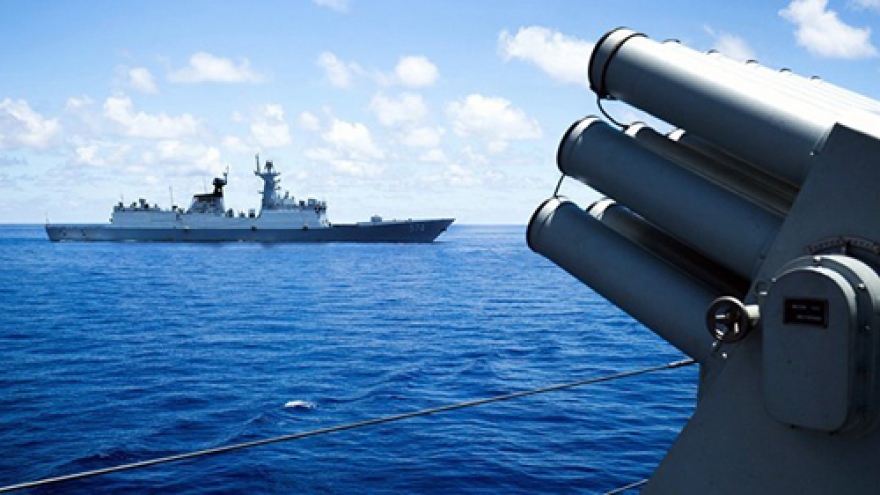Cooperation for peace in East Sea benefits all sides involved: seminar
An international seminar on the future of maritime activities in Asia after the The Hague’s arbitration ruling took place at the Meiji University in Tokyo, gathering Japanese and regional experts.
 |
| A photo taken by the US's spy planes in the East Sea |
They agreed that the ruling creates the foundation for regional cooperation in the East Sea for mutual benefits.
The shared viewpoint is that navigation and maritime freedom in the East Sea is in the interest of not only regional countries but also the world as a whole.
Go Ito, head of the Meiji Institute of International Policy Studies (MIIPS), said the tribunal court’s decision is an important legal framework for countries with overlapping claims in the East Sea to reach agreements that could bring economic and political benefits for the entire region.
He stressed the waters’ role in regional air and marine security, saying that this is the reason why Japan and the US could not stand aside the matter.
Freedom of navigation and overflight is a common concern regionally and internationally, he noted.
Agreeing with Ito, Song Yann-Huei, Research Fellow at the Taiwanese Sinica Academy’s Institute of European and American Studies, added the fact that US$5.3 trillion worth of commodities travel across the waters every year, therefore peace in the waters is in the interest of all countries, with the PCA ruling at its foundation.
Professor Virgina Bacay Watson from the US Department of Defense’s Asia-Pacific Center for Security Studies highlighted the ruling impact on the Philippines.
Watson said it helped President Rodrigo Duterte launch a new diplomatic approach of increased cooperation with regional countries and reduce tension in relations with China.
The PCA ruling is a foundation for the Philippines to reinforce marine security and protect sea resources via intensifying activities of the coastal guard force.
Answering questions from a Vietnam News Agency reporter, Japanese former Vice Minister of Defence Tokuchi Hideshi said the future situation in East Sea would be affected by upcoming policies made by the US, China and ASEAN member countries.
He said the US’s East Sea-related policies are likely to see no major changes under the administration of President-elect Donald Trump, thus ASEAN’s reactions would play the most significant role.
According to the Japanese scholar, the situation in the East Sea will first and foremost depends on ASEAN solidarity and cooperation with countries outside the bloc, such as China, Japan and Australia.
Of the same opinion, David Walton from the Western Sydney University added that Vietnam would also have an important standing.



